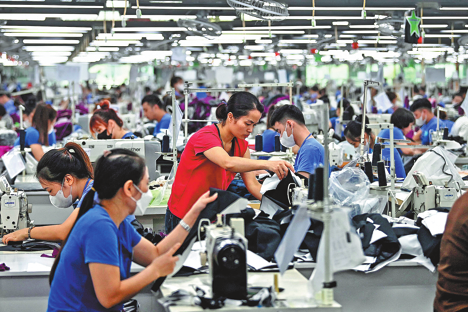Mahjong gains popularity among Japan's school kids

Mahjong once had a reputation for being a "pastime for adults" and a form of gambling, but the tile-based game is now growing in popularity among junior high and high school students. The first national High School Mahjong Championship was held this summer, and classes for young players are hives of activity as enthusiastic attendees pit their skills against each other.
The mahjong craze has been fueled by the game's portrayal in manga and anime, as well as by a belief that playing can make one smarter.
In a classroom at prefectural Kishine High School in Yokohama after school one day in mid-July, students from the school's mahjong club sat around several tables.
"Let's draw … I have Big Three Dragons," one boy declared, revealing he had a rare "yakuman" hand that automatically scores the maximum possible points.
The other students rushed over to the table and looked on enviously at the tiles in front of the boy.
This mahjong club, established in 2024, has 18 members, both boys and girls, from first-year to third-year students. They meet twice a week to polish their mahjong skills and are aiming to take the top spots at the championship.
High school students compete in teams of two at the tournament. A total of 286 teams from 180 schools across Japan, including Kishine High School, took part in the first championship.
"Of course, I want to win my games, but I also really like that, by playing mahjong, I become friends with teachers and students in other grades that I'd never spoken to before," said 17-year-old Takeru Sasaki, the club's president.
The students' interest in mahjong was sparked through modern-day media such as anime, videos and online games.
First-year student Shuta Tamura started playing when he was in elementary school after being inspired by the anime Saki, which depicts the fierce competition between members of a high school mahjong club who aspire to win a national title. Kishine High School's mahjong club was a major reason Tamura decided to attend the school.
"Being able to play mahjong as a school club activity is awesome," Tamura, 15, said.
Reo Kaneko, a teacher at the school and club supervisor, said the club offered many benefits.
"The students play after we drill into them that there's to be absolutely no gambling in these games," said Kaneko, 43. "We've held events that involve local residents, which has helped the students to grow and also enhances the school's appeal."
Extracurricular activity
In 2023, 17.6 percent of male teens played mahjong at least once, and 9 percent of female teens did so, according to the Japan Productivity Center's 2024 white paper on leisure activities. Both these figures were the highest for any age bracket, and the percentage of teenage boys and girls who play has reportedly doubled in the past two or three years. The data seem to reflect the attention that has been given to mahjong as an extracurricular activity in recent years.
Neuron, which operates mahjong schools for children at 16 locations across the nation, is dedicated to raising the game's popularity as a cerebral form of entertainment, not as a form of gambling. The number of students attending these mahjong classes has steadily increased in the past few years and has reportedly reached about 2,500.
When The Yomiuri Shimbun visited a Neuron school in Shinagawa, Tokyo, in late July, about 50 elementary and junior high school students wore steely expressions as they drew and discarded tiles.
A third-year elementary school student from Nakano who attends classes at the school, beamed as she talked about mahjong. "Even if you get some good tiles, you don't know who will win until the end. That's fun," she said.
Her mother added, "The children develop the ability to communicate with others here, and it's great that they enjoy playing while learning at the same time."
According to Yuichi Ikeya, representative director of Neuron, mahjong offers something for every child.
"Unlike sports, in which differences in physical size affect your performance, in mahjong even children can compete against adults without being at a disadvantage," Ikeya, 52, said. "Mahjong refines various intellectual abilities, and it gives players skills they can use as members of society."
Takefumi Higashijima, a pro mahjong player who also is a neurosurgeon, regularly surveyed 20 children between the ages of 6 and 15 who took classes at a Neuron school. Higashijima's research confirmed that, after one year, the IQ of these children had increased by an average of eight points.
"In particular, the speed at which these children processed information and their language comprehension ability improved," said Higashijima, 42.
"It seems the distinctive features of mahjong, in which players move their hands while figuring out what's going on in front of them as they converse with people from a wide range of ages, has a positive impact on the brain."
The Japan News



























